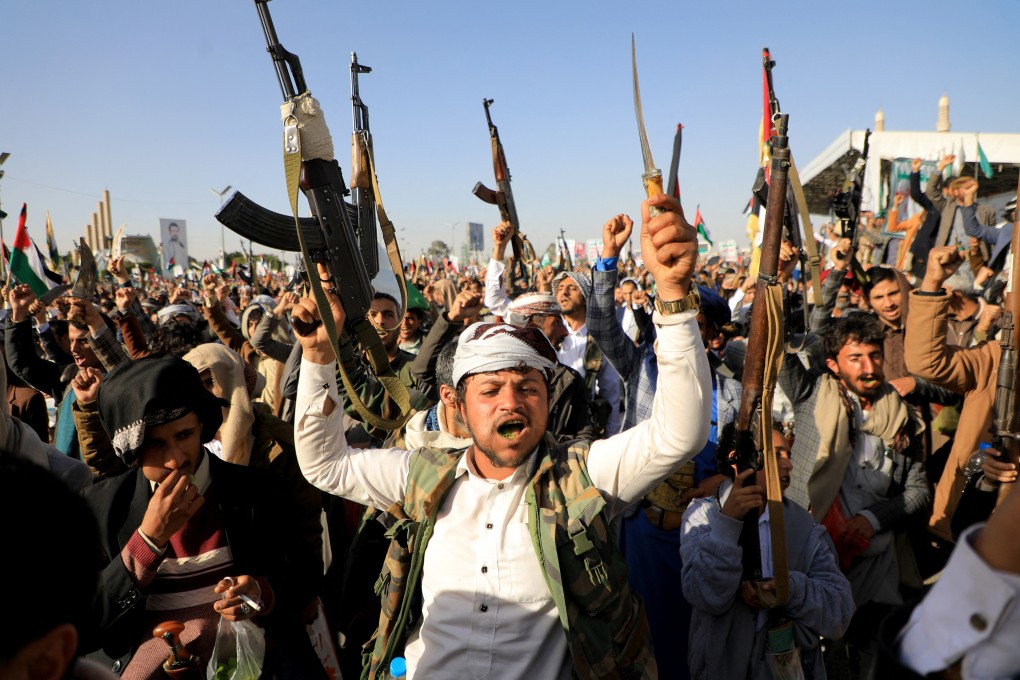Advertisement
Asian exporters face more Red Sea risks after US-led attacks on Houthis, alternative route adding to high costs
- Shipments of spare parts for goods such as electronic goods and cars from Asia to Europe have already been affected by the conflict in recent weeks
- Middle Eastern oil exporters are also finding it harder to sell to Europe as the longer route via the Cape of Good Hope entails much higher costs
Reading Time:4 minutes
Why you can trust SCMP
4

The supply of several key exports from Asia to Europe is being threatened by escalating violence in the Red Sea region after a new wave of attacks on Houthi militants launched by the US and UK.
Monday’s air strikes were the latest in a series of attacks that began with missiles launched on January 12 against the Iran-backed Yemeni rebel group, which has caused chaos for shippers worldwide by disrupting traffic through a Red Sea waterway that accounted for 12 per cent of global trade before the conflict.
Since the strikes began, the Houthis have vowed to step up their attacks on shipping vessels. While the violence has increased the prices and lengthened the delivery time of imports like oil to Asia, exports of a number of other key goods could also be curtailed, analysts say.
Advertisement
Asia’s manufacturing supply chains for spare parts, such as electronic goods and automobiles, to manufacturers in Europe are being threatened by the dislocation in the shipping route on the Red Sea, which has been ongoing since late December, said Cedomir Nestorovic, professor of geopolitics at Singapore’s ESSEC Business School Asia-Pacific.
“These industries follow Just-In-Time deliveries,” Nestorovic said, referring to the supply chain management approach that aims to increase efficiency by reducing inventory. “It is extremely important for them to get timely deliveries of spare parts,” he added, noting that some European firms have even set up manufacturers in parts of Asia such as China specifically to source their industrial goods.
Advertisement
Advertisement
Select Voice
Choose your listening speed
Get through articles 2x faster
1.25x
250 WPM
Slow
Average
Fast
1.25x